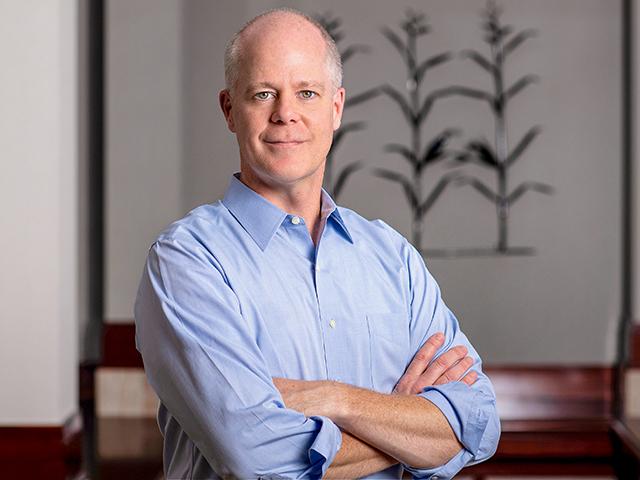Q and A With AGCO
Boost the Tech
Seth Crawford is senior vice president and general manager, Precision Ag and Digital, at AGCO Corp.
DTN/Progressive Farmer talks with him about technology costs and AGCO's retrofit strategy.
DTN/PF: What would you say farmers are most frustrated with regarding new technologies?
Seth Crawford: It seems like no matter what the product is, it's about a half-million dollars. Farmers are saying, "Hey, you're suggesting I buy this, to get this technology, but I've got a perfectly good piece of equipment sitting in my shed." That's one of the reasons we doubled down on our retrofit first strategy. The planters, sprayers and tractors [are] out there, they are good pieces of equipment that will last a long time, regardless of the brand.
DTN/PF: AGCO's Fendt brand is adding a sense-and-act spraying system to its Rogator. Called Smart Spraying (the result of a two-year partnership between Bosch and BASF), the technology targets weeds in fallow fields or in growing crops, spraying day and night. Tell us about it?
P[L1] D[0x0] M[300x250] OOP[F] ADUNIT[] T[]
Crawford: We're at the point where we believe that the technology is working, and that we'll be able to bring it to market in 2024. It'll be a factory-fit system. [This] changes the game as far as how we manage our fields and optimize chemical usage.
DTN/PF: What are AGCO's technology priorities over the next four or five years?
Crawford: We're looking at a couple of different areas. [For example,] our edge processing capability, where we have sensors and data processing capabilities on the machine. This enables us to capture thousands of data points per second. We're going through the field at accelerated speeds to sense and act in the moment with our planters and sprayers. [Precision Planting also] bought a company called Headsight (row-guidance and height-sensing technologies), which focuses on the harvesting portion of the crop cycle. At each stage, we want to be able to sense and act in the moment. We're also looking at being able to manage [a farm's] fleet from anywhere, investing in connectivity. I have a vision in my lifetime [where] we eliminate unplanned downtime, because unplanned downtime is super frustrating to the farmer.
DTN/PF: How does AGCO progress from automation of its equipment functions to autonomy?
Crawford: Our stated ambition is to be releasing retrofit, autonomy products in the field by the summer of 2024. Our primary focus is around the grain cart operation and tillage operations. But, by 2030, our commitment is to have the full crop cycle running autonomously. [There's] a lot of work to be done, but we feel good about where we stand today.
DTN/PF: What is the role, potentially, of small, independently operating bots on the farm?
Crawford: I think there will be some spots where small swarms of bots may come along. But, that will be more the exception rather than the rule. An application that makes sense to me [is for] scouting under the crop canopy, where you really can't see it from above. I saw one that looks a lot like these autonomous lawn mowers you're starting to see in North America. Less than a row width, so less than 30 inches, not more than 18 inches to 2 feet tall. And, just cruising along beneath that canopy doing its thing, scouting.
DTN/PF: I can't say I've heard it from dozens of farmers, but I suspect one concern about today's technologies is: "Yes, we can collect all this data to improve production and benefit sustainability. But, data also creates documentation." Would it be reasonable for commodity crop farmers to think there may be a day coming when government, or the private sector, asks them for evidence of certain production practices based on those records?
Crawford: That's a good question. But, it would be pure speculation on my part. Our intent with collecting the data is to help the farmer make their best decisions. It is their data. There's not fine print on that one. It is the farmer's data, and when data is collected, it is collected on their behalf and based on their consent. We think there's a lot of value there. And, we think we enable a better overall operation.
**
-- Follow Dan on X (formerly Twitter) @DMillerPF
[PF_1023]
(c) Copyright 2023 DTN, LLC. All rights reserved.




